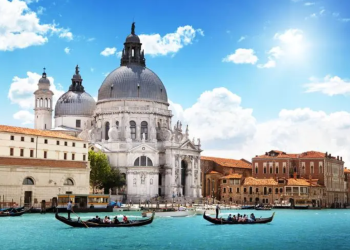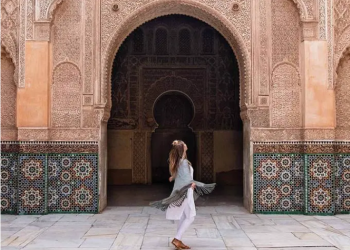1. Introduction
Embark on a journey through time as we delve into the ancient cities of the Middle East. From the majestic ruins of Mesopotamia to the timeless wonders of Egypt, these ancient sites offer a glimpse into the rich history and vibrant culture of the region. Join us as we explore the fascinating world of ancient cities in the Middle East.
2. Understanding Ancient Cities
Definition and Significance
Ancient cities are urban settlements that flourished in antiquity, playing a crucial role in the development of civilization. These cities served as centers of commerce, culture, and governance, shaping the course of history and leaving behind a legacy that continues to inspire awe and fascination.
Characteristics of Ancient Cities
Ancient cities are characterized by their architectural marvels, advanced infrastructure, and sophisticated societies. From monumental temples and palaces to intricate street layouts and defensive walls, these cities reflect the ingenuity and creativity of their inhabitants.
3. Exploring Ancient Cities
Famous Ancient Cities in the Middle East
The Middle East is home to some of the world’s most renowned ancient cities, including Babylon, Petra, Palmyra, and Persepolis. Each of these cities has its own unique history and architectural wonders waiting to be discovered.
Key Features and Attractions
Visitors to ancient cities in the Middle East can marvel at iconic landmarks such as the Hanging Gardens of Babylon, the Treasury in Petra, the Temple of Bel in Palmyra, and the Gate of All Nations in Persepolis. These sites offer insights into the achievements and aspirations of ancient civilizations.
4. Understanding the History and Culture
Historical Background
The history of ancient cities in the Middle East is intertwined with the rise and fall of empires, the spread of religions, and the exchange of ideas and goods along ancient trade routes. From the Sumerians and Babylonians to the Persians and Romans, the region has been shaped by a diverse array of cultures and civilizations.
Cultural Significance
Ancient cities in the Middle East are not only repositories of history but also centers of cultural heritage and identity. They serve as reminders of the achievements of past civilizations and inspire reverence and admiration for the ingenuity and resilience of the human spirit.
5. Practical Tips for Exploration
Planning Your Visit
Before visiting ancient cities in the Middle East, research their locations, opening hours, and entry requirements. Consider hiring a knowledgeable guide or joining a guided tour to enhance your experience and gain deeper insights into the sites you visit.
Cultural Sensitivity
Respect the cultural and religious sensitivities of the local population when visiting ancient cities in the Middle East. Dress modestly, observe local customs and traditions, and refrain from engaging in behavior that may be deemed disrespectful or offensive.
Safety Precautions
Exercise caution and vigilance when exploring ancient cities in the Middle East, especially in areas prone to conflict or political instability. Stay informed about current events and travel advisories, and avoid venturing into unsafe or restricted areas.
6. Conclusion
Exploring ancient cities in the Middle East is a journey of discovery and enlightenment, offering insights into the rich tapestry of history and culture that has shaped the region for millennia. By delving into the ruins of the past, we can gain a deeper appreciation for the enduring legacy of ancient civilizations and their contributions to the world.

FAQs After The Conclusion
- Are ancient cities in the Middle East open to the public?
- Many ancient cities in the Middle East are open to the public for exploration, although some may have restricted access or require special permits for entry. It’s advisable to check the latest information before planning your visit.
- What is the best time of year to visit ancient cities in the Middle East?
- The best time to visit ancient cities in the Middle East is during the cooler months of spring and autumn when the weather is milder and more comfortable for outdoor exploration. Summer can be extremely hot, while winter may bring colder temperatures and occasional rainfall.
- How can I learn more about the history and culture of ancient cities in the Middle East?
- To learn more about the history and culture of ancient cities in the Middle East, consider visiting museums, archaeological sites, and cultural institutions dedicated to preserving and interpreting the region’s heritage. Additionally, reading books, watching documentaries, and attending lectures can provide valuable insights into the subject.
- Are there guided tours available for exploring ancient cities in the Middle East?
- Yes, many tour operators offer guided tours of ancient cities in the Middle East, led by knowledgeable guides who provide historical context and interpretive commentary. Joining a guided tour can enhance your experience and deepen your understanding of the sites you visit.
- What should I bring with me when visiting ancient cities in the Middle East?
- When visiting ancient cities in the Middle East, it’s essential to bring essentials such as sunscreen, water, comfortable walking shoes, a hat, sunglasses, and a camera. Additionally, consider carrying a guidebook or map to help navigate the sites.
- Are there any special rules or regulations I need to follow when visiting ancient cities in the Middle East?
- While visiting ancient cities in the Middle East, it’s important to respect local customs, traditions, and regulations. Follow instructions from site staff, avoid climbing on or touching ancient monuments, and refrain from littering or engaging in disruptive behavior.
- Can I take photographs in ancient cities in the Middle East?
- In most cases, photography is permitted in ancient cities in the Middle East for personal use. However, some sites may have restrictions on photography, particularly in areas of religious or cultural significance. Always ask for permission before taking photographs, especially of people.
- Are there any accommodations near ancient cities in the Middle East?
- Yes, there are often accommodations available near ancient cities in the Middle East, ranging from hotels and guesthouses to campsites and lodges. It’s advisable to book accommodations in advance, especially during peak tourist seasons.









